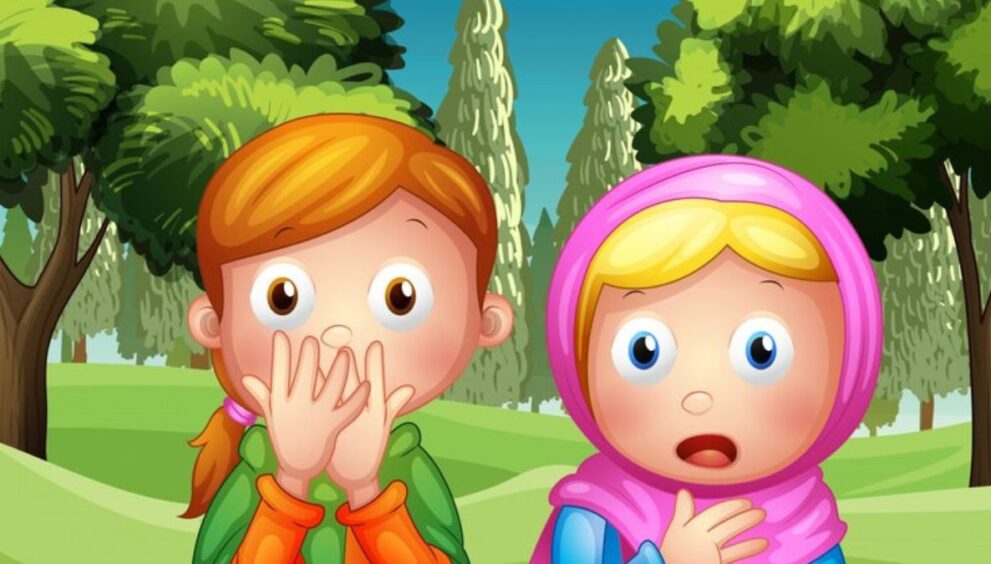Navigating Copyright in Doujinshi: The Legal Landscape of doujindesu

The world of doujindesu is a vibrant tapestry woven with creativity and passion. These self-published works, often inspired by popular anime, manga, or video games, have captured the hearts of fans worldwide. From fan art to original stories, doujindesus offers a unique way for creators to express their love for beloved franchises while showcasing their artistic talents.
As this niche continues to flourish, understanding the legal landscape surrounding it becomes essential. With platforms like doujindesu rising in prominence as hubs for these creations, navigating copyright issues can feel daunting. Whether you’re an aspiring creator or an avid reader looking to support your favorite artists, knowing the ins and outs of copyright can help you engage responsibly in this dynamic community. Let’s dive deeper into what makes doujindesus so special and how you can thrive within its exciting yet complex framework.
The concept of copyright and how it applies to doujinshi
Copyright is a legal protection that grants creators exclusive rights to their original works. This extends to various forms of media, including doujinshi.
Doujinshi, or self-published works often inspired by existing series, sits in a gray area when it comes to copyright law. While creators express their love for characters and stories through fan art and narratives, they must be aware of the underlying ownership held by the original authors.
In many cases, creating doujinshi may infringe on these copyrights if done without permission. However, some publishers are more lenient than others regarding fan creations. The key lies in understanding the nuances of each situation.
It’s vital for artists to research specific guidelines related to their source material. This informed approach can help navigate potential pitfalls while still allowing creativity to flourish within established franchises.
Legal implications of creating and distributing doujinshi without permission
Creating and distributing doujinshi without permission can lead to serious legal consequences. Many original creators hold copyright over their works, and unauthorized use can be seen as infringement.
When a doujinshi borrows characters or storylines from existing media, the risk increases. Companies may issue cease-and-desist orders, demanding that creators stop production or distribution immediately. This could mean losing time and resources invested in the project.
Additionally, if distribution occurs online—especially on popular platforms—the chances of being targeted heighten. Legal action might follow, leading to potential fines or even litigation.
Understanding these implications is crucial for aspiring artists within the doujinshi community. While passion drives creativity, awareness of copyright laws fosters responsible engagement with beloved franchises. Navigating this landscape isn’t just about art; it’s also about respecting intellectual property rights.
The rise of doujindesu and its impact on the doujinshi community
Doujindesu has emerged as a pivotal platform for doujinshi creators and fans alike. Its user-friendly interface allows artists to showcase their work, fostering a vibrant community around indie manga and fan art.
As more creators flock to doujindesu, the diversity of content available expands dramatically. This surge encourages collaboration among artists who share similar interests or themes. It’s not just about sharing; it’s about building connections that resonate within the community.
However, with this rise comes challenges. Many creators face uncertainty regarding copyright issues when distributing their works on such platforms. Navigating these waters can be tricky but necessary for sustaining creative freedom while respecting original IP.
Despite potential legal hurdles, doujindesu continues to empower independent voices in the doujinshi scene. The platform nurtures innovation while bringing together enthusiasts from various backgrounds, enriching the overall culture surrounding doujinshi creation and appreciation.
The role of fair use in the creation and distribution of doujinshi
Fair use plays a crucial role in the world of doujinshi. It provides a legal framework that allows creators to produce works inspired by existing characters and stories. This concept helps foster creativity while respecting original content.
Within fair use, parody and commentary are key components. Doujin artists often add humor or critique to their work, which can qualify for protection under this doctrine. Such expression encourages innovation and contributes to vibrant fan communities.
However, navigating fair use is complex. Not all transformative works meet its criteria. Artists must ensure they don’t merely copy original material but instead offer something new.
Understanding boundaries is essential for doujinshi creators who wish to explore their artistic vision without crossing legal lines. They should remain aware of how much of the source material they can utilize while still claiming fair use protections effectively.
Tips for navigating copyright issues in the world of doujinshi
Understanding copyright can be daunting, but there are practical steps to navigate this complex landscape.
First, always credit original creators. Whether it’s a character or an entire universe, acknowledgment goes a long way in fostering goodwill.
Second, seek permission when possible. Many creators appreciate fan works and may grant you the rights to use their characters or settings.
Consider using parody elements if appropriate. Parody often falls under fair use but tread carefully; ensure your work transforms the original material enough to make it distinct.
Stay informed about community guidelines on platforms like doujindesu. Each platform has different rules that affect how you share your creations.
Engage with fellow artists and legal experts for advice. Building relationships within the community can provide insights that help protect your work while respecting others’ rights.
Conclusion:
The world of doujinshi is vibrant and captivating, attracting creators and fans alike. Understanding the legal landscape surrounding this medium can enhance your experience as both a creator and a consumer.
Navigating copyright issues doesn’t have to feel daunting. With the right knowledge, artists can express their creativity while respecting original works.
As you explore doujindesu or participate in its thriving community, keep these considerations in mind. Embrace creativity responsibly. There’s room for innovation within the guidelines that protect both original artists and passionate fans.
FAQ’s
What is doujindesu?
Doujindesu refers to a popular online platform where fans create, share, and sell their own versions of existing manga or anime characters. It’s a hub for creativity but comes with its set of legal considerations.
Can I use character designs from my favorite series in my doujinshi?
While many creators do it, using established character designs without permission can lead to copyright infringement claims. Consider creating original characters inspired by your favorites instead.
How does fair use apply in the context of doujinshi?
Fair use is often debated within the fandom community. Generally, if your work adds new meaning or commentary and doesn’t harm the market for the original work, you may have grounds for fair use—but it’s not guaranteed.







